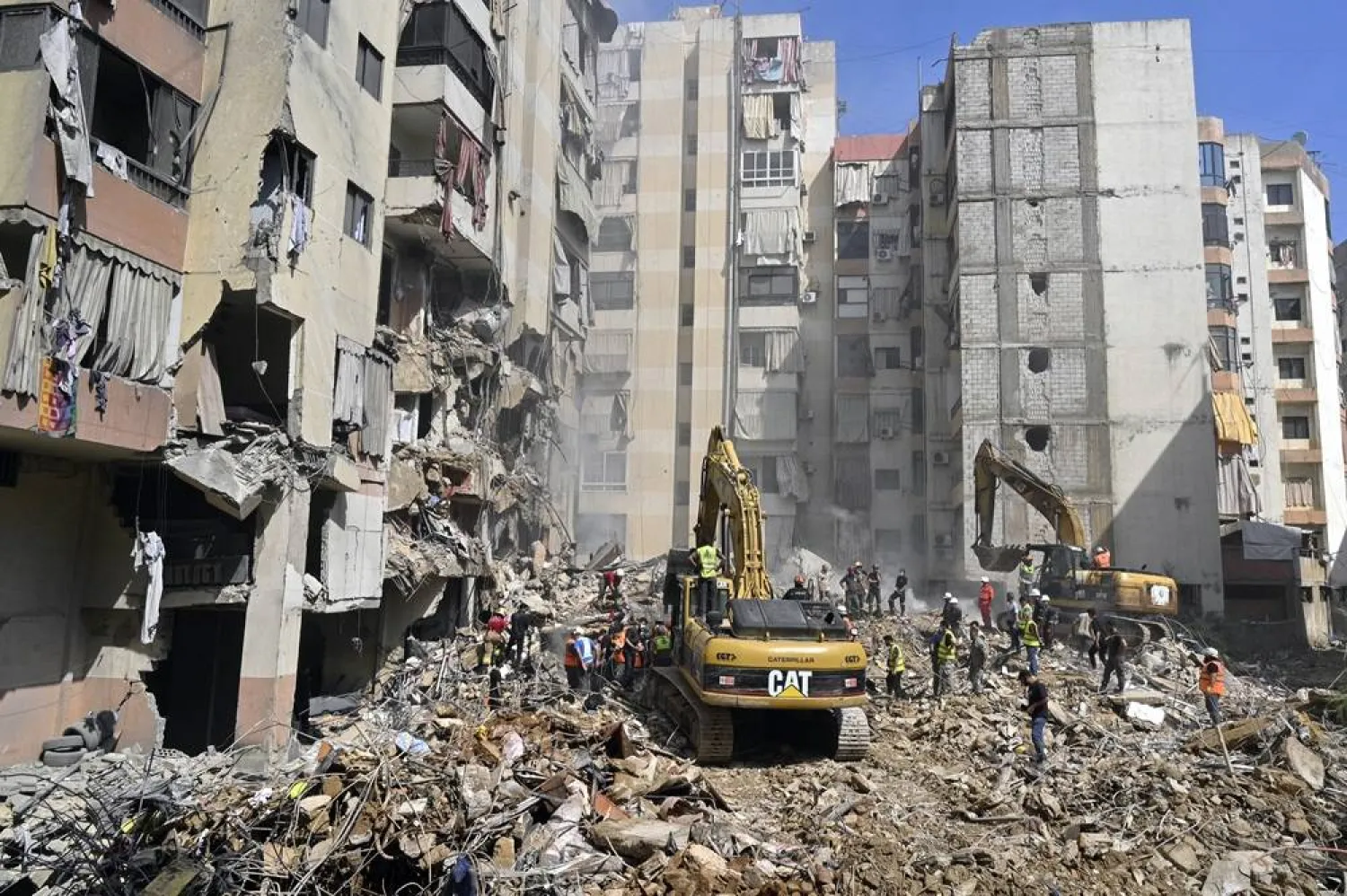Two Hezbollah leaders were among those killed in an Israeli airstrike on a Beirut suburb on Friday, Israel’s military said Saturday, as Lebanon raised the death toll from the attack to 37, including women and children.
Israel and Hezbollah continued to trade fire Saturday, a day after the airstrike claimed the lives of Ibrahim Akil, who was in charge of Hezbollah’s elite Radwan Force, and Ahmed Wahbi, another senior commander in the group’s military wing.
Firas Abiad told reporters that the dead included seven women and three children. He said another 68 people were wounded of whom 15 remained in hospital, adding that search and rescue operations were still ongoing, with the number of casualties likely to rise.
The rare strike hit an apartment block in a densely populated south Beirut neighborhood on Friday afternoon during rush hour. It was the deadliest strike targeting the Lebanese capital since the 2006 Israel-Hezbollah war.
Hezbollah confirms more than a dozen operatives were killed Akil, the main target, had been wanted by the US for years for his alleged role in the 1983 bombing of the US Embassy in Beirut and in taking American and German hostages in Lebanon in the 1980s.
He was under US sanctions and the US State Department last year announced a reward of up to $7 million for information leading to his “identification, location, arrest, and/or conviction.”
Wahbi was described as a commander who played major roles within Hezbollah for decades and was imprisoned in an Israeli jail in south Lebanon in 1984. Hezbollah said he was one of the “field commanders” of a 1997 ambush in southern Lebanon that left 12 Israeli troops dead.
Hezbollah announced overnight Friday that 15 of its operatives were killed by Israeli forces, but did not elaborate on the location of these deaths. Meanwhile, the Israeli army spokesperson, Lt. Col. Nadav Shoshani, said on Saturday a total of 16 Hezbollah fighters were killed in the strike.
Israel earlier said Akil had been meeting with other Hezbollah members in the basement of the apartment block.
Rescue workers digging through rubble Lebanese troops cordoned off the area around the destroyed building as members of the Lebanese Red Cross stood nearby to take any bodies recovered from the rubble. On Saturday morning, Hezbollah’s media office took journalists on a tour of the scene of the airstrike where workers were still digging through the building’s ruins.
The Minister of Public Works and Transport Ali Hamieh told reporters at the scene that 23 people are still missing.
The airstrike on the crowded Qaim street knocked out an eight-story building that had 16 apartments and damaged another one adjacent to it. The missiles destroyed the building and cut through the basement where the meeting of Hezbollah officials was being held, according to an Associated Press journalist at the scene.
Shops in a nearby building were badly damaged.
Hezbollah bombardments preceded Israeli airstrike Friday's deadly strike came hours after Hezbollah launched one of its most intense bombardments of northern Israel in nearly a year of fighting, largely targeting Israeli military sites. Israel’s Iron Dome missile defense system intercepted most of the Katyusha rockets.
The group said its latest wave of rocket salvos was a response to Israeli strikes on southern Lebanon. However, it came days after mass explosions of Hezbollah pagers and walkie-talkies killed at least 37 people — including two children. Some 2,900 others were wounded in the assault which has been widely attributed to Israel.
The Lebanese health minister said Saturday hospitals across the country were filled with the wounded.
Israel has neither confirmed nor denied involvement in the attack, which marked a major escalation in the past 11 months of simmering conflict along the Israel-Lebanon border.
On Saturday, Israel launched an intense wave of airstrikes on southern Lebanon, according to an Associated Press journalist in the area. The Israeli military said its air force was attacking Hezbollah targets, without providing further details. The group responded by firing a large number of rockets, local media reported.
It remains unclear if there were any casualties in the latest strikes.
Earlier this week, Israel’s security cabinet said stopping Hezbollah’s attacks in the country’s north to allow residents to return to their homes is now an official war goal, as it considers a wider military operation in Lebanon that could spark an all-out conflict. Israel has since sent a powerful fighting force to the northern border.
Hezbollah has maintained that it will halt its strikes only when a cease-fire is reached in Gaza.
The tit-for-tat strikes have forced tens of thousands of people to evacuate their homes in both southern Lebanon and northern Israel.
Israel and Hezbollah have traded fire regularly since Hamas’ Oct. 7 assault on southern Israel ignited the Israeli military’s devastating offensive in Gaza. But previous cross-border attacks have largely struck areas in northern Israel that had been evacuated and less-populated parts of southern Lebanon.









